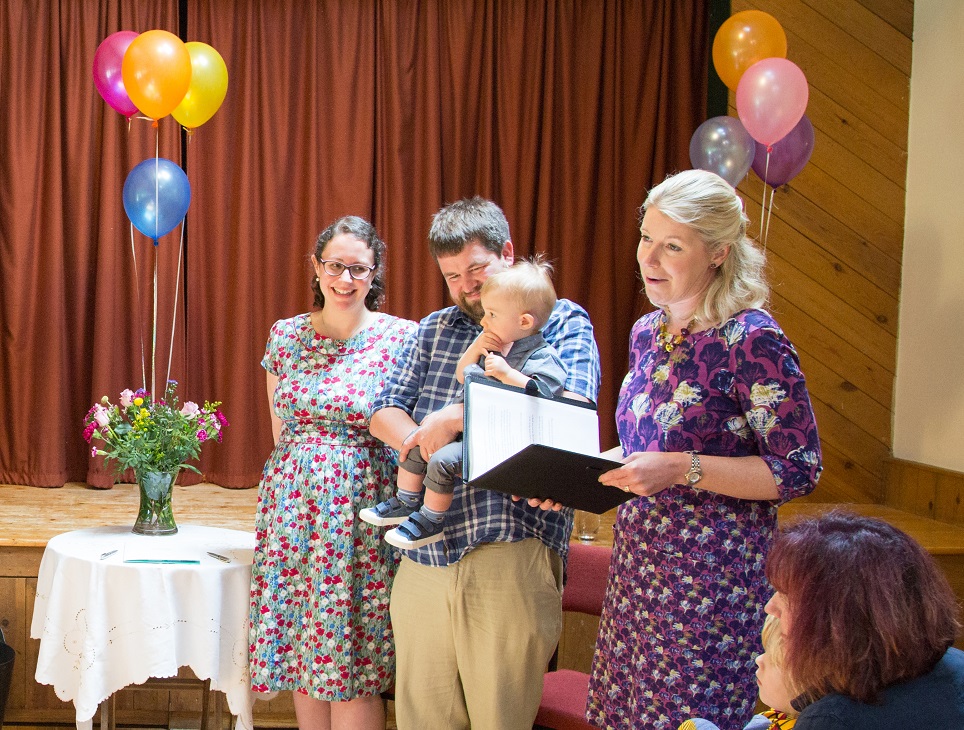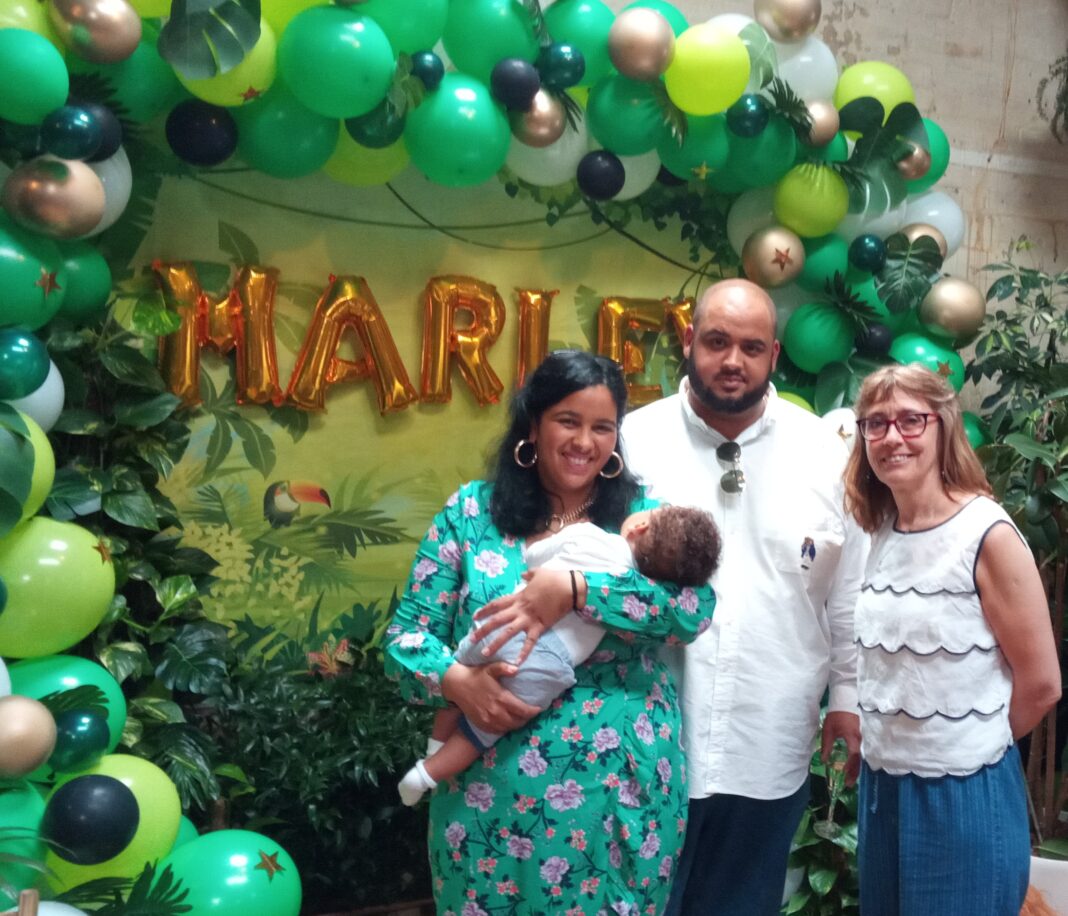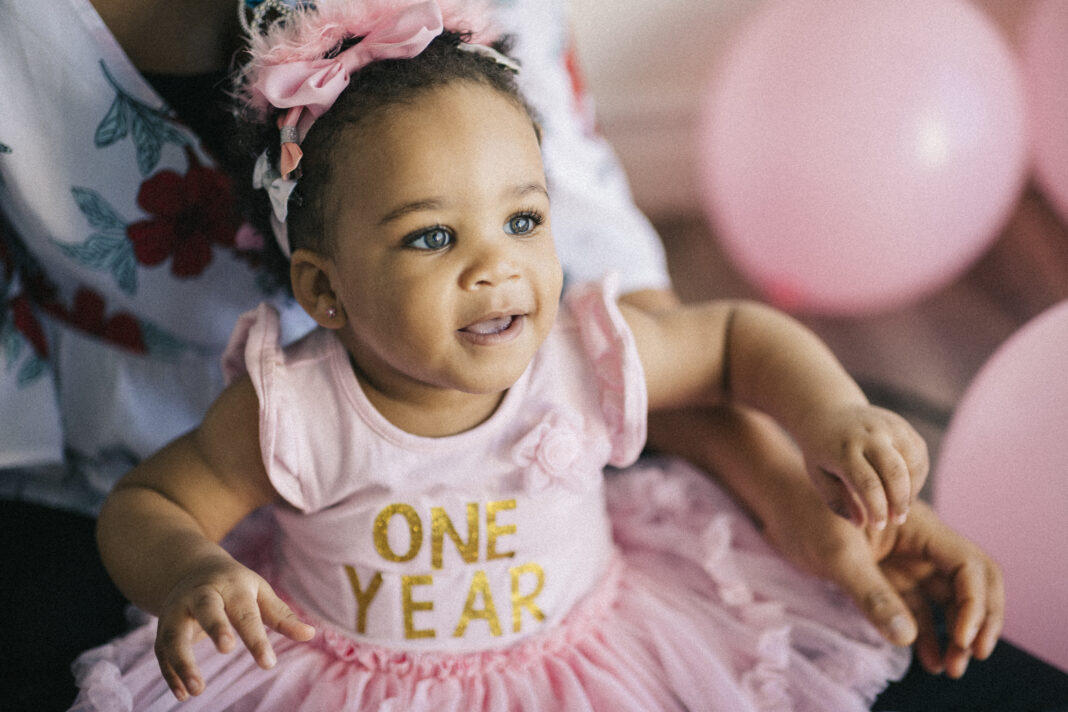Choosing how you welcome a new child to the family is always a personal matter which should reflect your values and beliefs. Humanist naming ceremonies and christenings are both symbolic occasions which have no legal status. And while both types of ceremony provide a way of introducing a new child to a wider network of family and friends, their content, style, and the meaning of these events is very different.
What is a humanist naming ceremony?
A humanist naming ceremony is an inclusive, non-religious celebration for welcoming a child into your family in a way that is personal and meaningful to you. The personalised ceremony focuses on your child and the friends and family that surround them, and you or your celebrant will name your child in front of the friends and family you have invited to be part of this special day.
The format of a humanist naming ceremony is flexible and the content and delivery of each ceremony is individual and unique. Your celebrant can help you to construct a ceremony around poetry readings and symbolic acts that have importance to your family and help give a sense of shape and occasion to the big day.

A humanist ceremony does not induct a child into a belief system, but instead acknowledges the child’s freedom to make up their own mind and make their own choices as they grow older.
A naming ceremony is not about making promises on behalf of your child, but it can include making promises to your child. You as parents can make promises to your child and the guideparents can also be invited to make their own individual promises.
Guideparents
At a humanist ceremony, you can have as many ‘guideparents’ as you like and there are no rules about the gender makeup of the group. Each can have their own unique role and make individual promises to your child.

How long is a naming ceremony?
With a humanist ceremony, there’s no time restriction. You have the opportunity to include parental promises, promises from guideparents, poetry readings, music, singing, symbolic acts, and games. The opportunities for fun, personalised ceremonies are endless and yours can last for hours!
A naming ceremony can be held wherever you want: at home, in the park, the garden, a function room, or your local village hall.

It can also be combined with a birthday party or a wedding. The choice is yours.
What is a christening?
Christenings are religious services held in Christian churches and conducted by priests or vicars. A christening is a religious ceremony that welcomes someone into the Christian church by baptism. Baptism involves water being sprinkled or poured over the baby’s head and the act is the initiation into the church. Christians believe that baptism removes from the baby ‘original sin’ (brought into the world when Adam and Eve disobeyed God in the Garden of Eden).
Is humanism another religion?
Humanism isn’t a religion. Really, it’s just a word that describes a worldview that is shared by millions of non-religious people across the world.
Humanists don’t believe in a creator, an afterlife, or in the supernatural. We believe that we have one life and that it’s what we do and the way we treat others that really counts.
We’re not religious, but we respect other people’s beliefs and think that there should be no discrimination against anybody on the grounds of religion or belief.
Many people share humanist beliefs without putting a name to them or knowing that the term ‘humanist’ exists. We’ve designed a quick quiz to help you find out if your views could be called humanist views.
Humanist naming ceremonies are always about the child, not about humanism, which makes them perfect for families who don’t follow any particular religious belief. They emphasise a child’s freedom to decide for themselves what they believe as they grow older.
You can find out more about humanism on the Humanists UK website.
Find your local humanist naming celebrant
If you’re interested in planning a humanist naming ceremony, you can use our online map to find a naming celebrant local to you. Your celebrant will be happy to discuss ideas with you.







